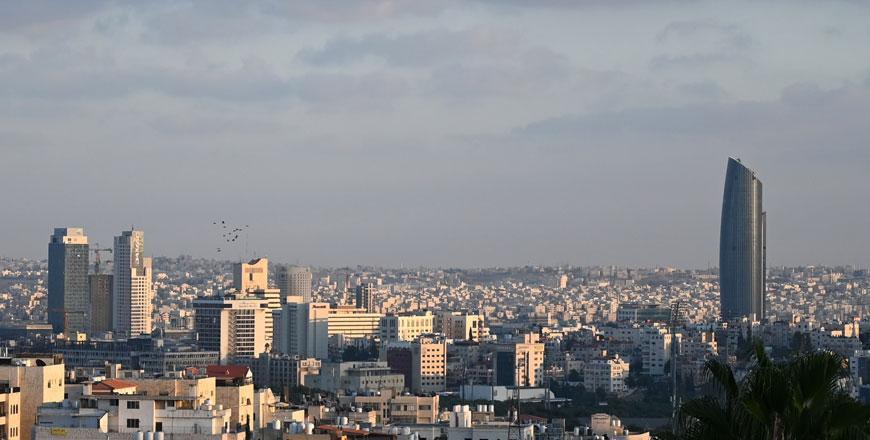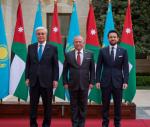You are here
Challenges galore for new gov’t
By Bahaa Al Deen Al Nawas - Oct 13,2020 - Last updated at Oct 13,2020
AMMAN — Multiple challenges are in store for the new government, mainly improving economic conditions, increasing the level of trust in government, especially in regard to measures taken to curb the spread of the coronavirus, among others, according to experts.
“The most important priority for the government is to rebuild the trust with the different segments in society, as there was a clear lack of trust between citizens and the previous government, especially in regard to measures to combat the spread of the virus,” Jamal Shalabi, professor of political science at the Hashemite University, told The Jordan Times on Monday over the phone.
Prime Minister Bisher Al Khasawneh’s government has to be “transparent and practical” in dealing with the crisis to restore citizens’ trust, Shalabi said.
The Kingdom faces many economic challenges, including a debt of around JD32 billion and an unemployment rate that went up to 23 per cent during the crisis, which is a big challenge and priority for the new government, Shalabi said.
However, the government needs to ensure a balance between keeping businesses ongoing and preserving the public’s health, he said.
“The upcoming elections is an opportunity for the government to showcase transparency and objectivity, utilising communication and dialogue with all social, political and economic factions and entities in the country,” the professor said.
In foreign relations, the government needs to prioritise communication with Arab countries to address the difficult regional conditions, especially in regard to the Deal of the Century and the “Arab Spring”, diversify diplomatic and political options, enhance relations with Russia, China and African countries, aside from the traditional US and European allies, Shalabi said.
He concluded that efforts must be intensified to find comprehensive and peaceful solutions to the Palestinian cause, away from the solutions proposed by US President Donald Trump and Israel.
Economist Wajdi Makhamreh said that first and foremost, the new government have to deal with economic and health issues, especially in light of the pandemic.
“The economic challenges include the budget deficit, drop in revenues, increasing debt, drop in foreign currency and the damage that the tourism sector has faced as well as the lack of expatriate remittances,” Makhamreh said, noting that the task will be difficult.
“Many wonder how the government will handle the budget deficit, especially as the deal with the International Monetary Fund [IMF] will continue next year; which could be through increasing taxes or borrowing more, increasing the debt further,” Makhamreh said, noting that the latest statistics have shown that the debt is 101 per cent of the gross domestic product.
The economist also highlighted the importance of controlling and mitigating government spending while also improving investment policies to attract local and regional investments, in addition to improving public-private partnership, which he said will help tackle unemployment rates.
He concluded that economic priorities should focus on increasing local consumption through reducing sales tax, encouraging exports and combating tax evasion.
Director of the Phenix Centre for Economic Studies reiterated Shalabi’s remarks in regard to the importance of prioritising bridging the trust gap between the new government and the public, thus ensuring better implementation of measures to combat the spread of COVID-19.
He noted that austerity measures under the deal with the IMF may not be efficient after the coronavirus crisis, noting that the focus should be on improving social protection for segments affected by the crisis, as well as improving the economy.
“There are four pillars the new government has to focus on: Health, economy, media policies and tourism and trade,” Mohammad Obeidat, a citizen residing in Amman and a communications expert told The Jordan Times over the phone.
Obeidat said there needs to be a new media campaign different from that of the previous government, changing the approach and way messages are sent to people.
“The focus should be on uniting people against the virus and more clearly explaining how lack of commitment to public health measures could lead back to closures, which people do not want to hear, so new media policies and improved ways of addressing the public are due,” Obeidat noted.
Economically, Obeidat believes the government needs to form an economic crisis cell that tackles decisions and takes actions related to the economy, especially in regard to the virus and curbing its spread. He called for seeking new trade and tourism routes in the region.
Obeidat also highlighted the importance of enhancing the fight against corruption.
Related Articles
AMMAN — Economists on Monday said that the Central Bank of Jordan's (CBJ) measures aimed at injecting JD550 million into the economy amid th
AMMAN — The latest Standard and Poor’s (S&P) Global Ratings report reaffirmed Jordan’s stability, maintaining it at B/B+ credit rating,
AMMAN — His Majesty King Abdullah’s Speech from the Throne during the inauguration of the 19th Parliament’s non-ordinary session reaffirmed
















